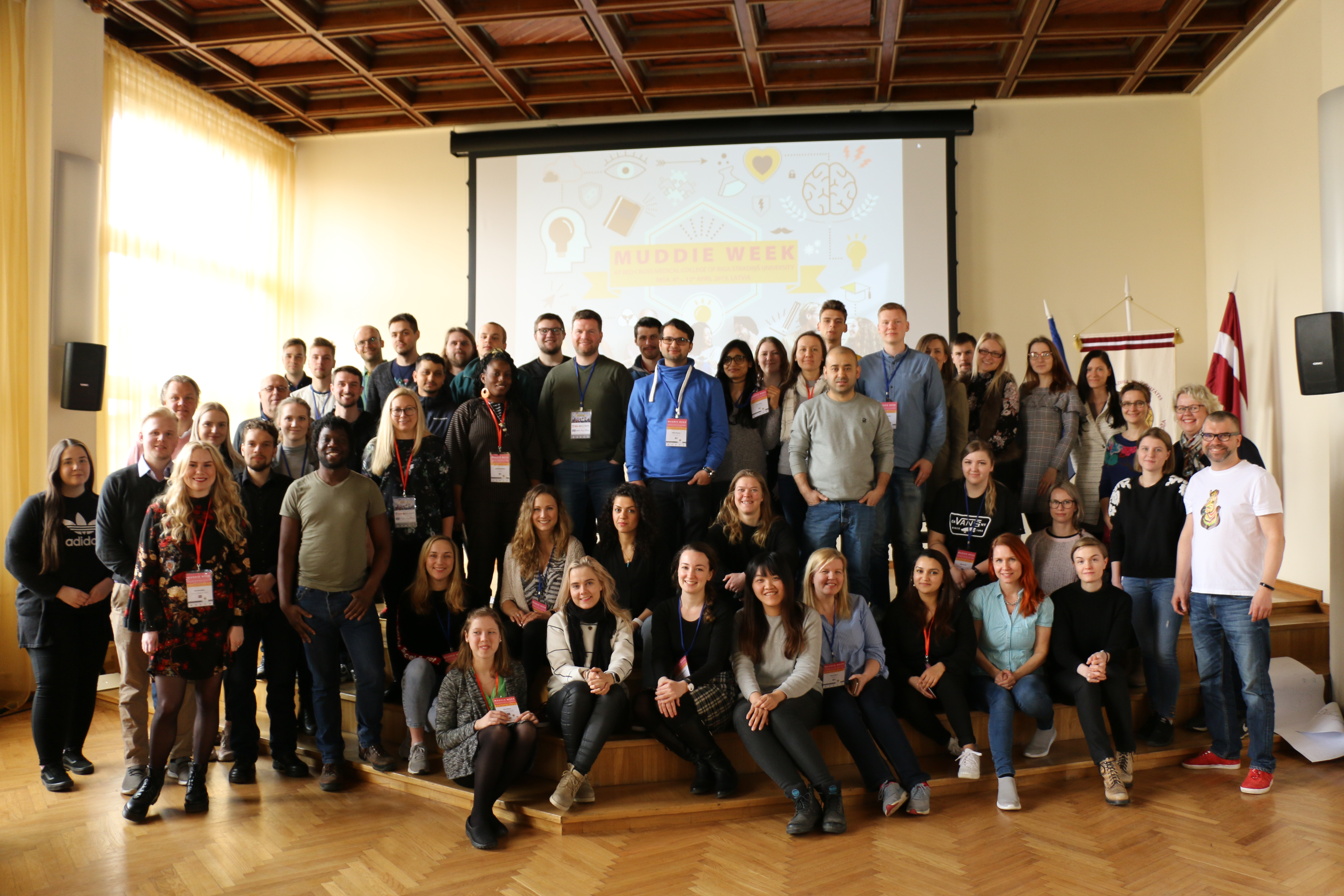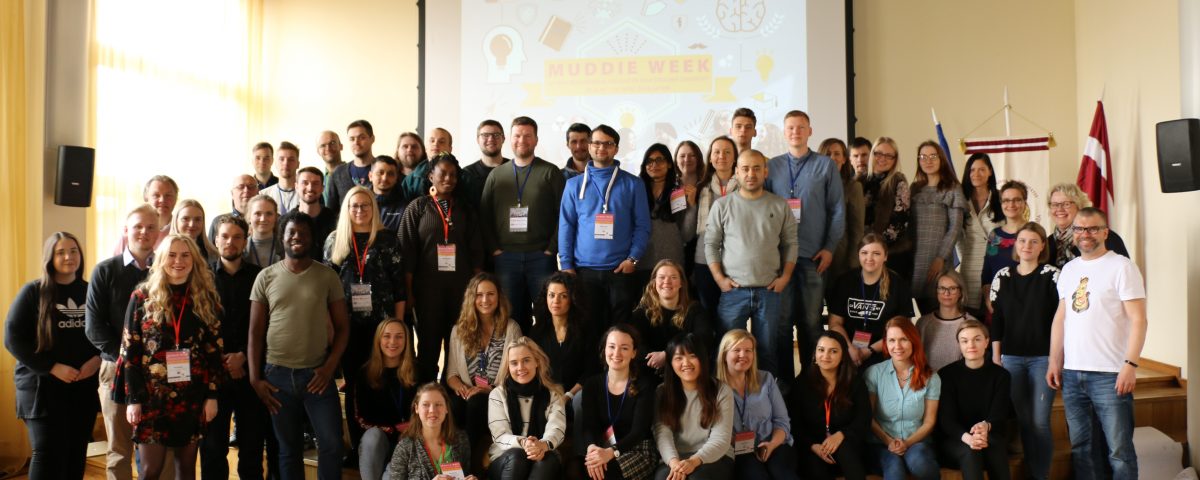
In the future, digital health and social care services will become fast-growing worldwide businesses (European Commission 2012). Successful customer-orientated services require co-creation by multiprofessional teams (Björk & Ottosson 2016). Therefore, the main objective of the Multiprofessional Digital Developers’ Intensive Course (Muddie 3) was to offer Nordic-Baltic experts and students the possibility to share good practices and to work together on customer-oriented service designs in digital health and welfare. In practice, the intensive course formed a platform for workshops where the participants designed and built up pilot services for eHealth and eSocial care. In the Developer of Digital Health and Welfare (DeDiWe) Services project 2015–2018, funded by the Central Baltic Programme, a new multiprofessional 30-credit-point curriculum was developed, with a focus on learning in multiprofessional groups in an international context.
The Muddie Intensive Week in Riga, Latvia, during spring 2019, offered great experiences for teachers and candidate students working together in multiprofessional teams developing eHealth and welfare services. In our case, multiprofessional teams were formed with students who were studying health care, business, IT or design. The multiprofessional environment enabled people from various disciplines with specific domain knowledge to collaborate and share expertise. Seven partners from higher education organizations took part in this intensive week. Four participants were Universities of Applied Sciences (UAS) in Finland, one was from Estonia and two were from Latvia. This Service Design Model for Higher Education in the Context of Digital Health and Wellbeing is aimed to provide tools and methods for multiprofessional groups of teachers who guide students in developing customer-centric digital services for health and social care (Ahonen et al. 2018). The aim of this article is to describe the service design intensive week model and to help the reader apply this model in future learning contexts.

